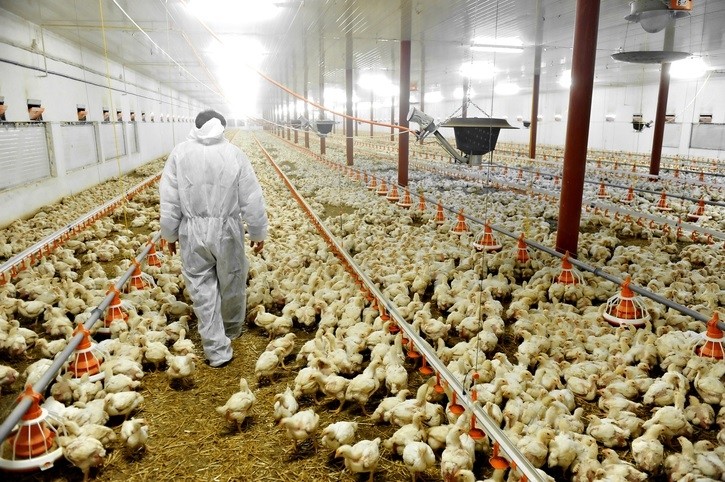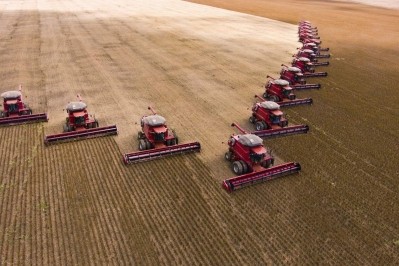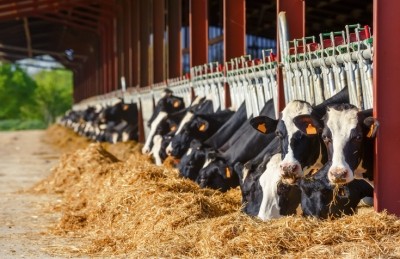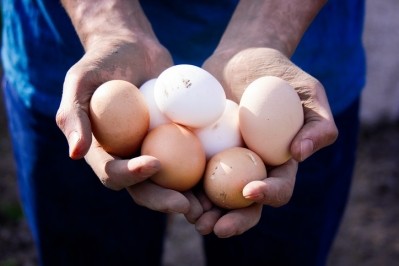Other Voices
Anti-factory farming group urges more resource efficient meat and milk production

To draw European leaders’ attention to this issue, that not for profit group, in junction with the WWF, is are hosting a conference - Extinction and Livestock - in London next week.
Lymbery said farmed animal production, the environment, wildlife conservation and human health are all interconnected so it is critical that experts from these sectors come together to deal with the threat of species extinction before it’s too late, said Philip Lymbery, chief executive of Compassion in World Farming.
“We want to find more resource efficient ways of producing meat and milk,” he said.
Livestock production, driven by consumer demand for cheap meat, is one of the biggest drivers of species extinction and biodiversity loss on the planet, said Lymbery, when speaking to FeedNavigator a few months back.
The future of elephants in Sunatra, the jaguars of Brazil, and the penguins of Robin Island is at stake, he said.
Industrial farming is having a devastating impact on the welfare of farm animals; it has exacerbated wildlife loss in rural landscapes, and has had a negative impact on ecosystems, he continued.
Soy and palm oil link to deforestation
He decried the production of monoculture crops like palm oil and soy, grown for both human consumption and livestock feed, linking such cultivation to massive deforestation and species destruction.
He also criticized the fishing of forage fish like anchovies and sardines to make fishmeal for sectors such as the farmed salmon industry. “The result is that animals such as penguins are left without part of their staple diet,” said Lymbery.
The group is calling for a farming model, based on pasture, that works in harmony with the environment and not against it.
Feeding human edible crops to animals is not sustainable, said the CEO.
“The food industry has been hijacked by the animal feed industry.”
Moreover, grain-fed animals contribute much less back in the form of milk, eggs and meat than they consume, according to Lymbery.
Raising cattle on pasture and putting poultry and pigs outside where they can forage, while supplementing that with waste food is far more efficient, he argued.
He claimed that animal welfare is also undermined by commercial feed rations. “Feeding concentrated feeds to ruminants can cause lameness and acidosis. In terms of broiler chickens, protein concentrated diets to encourage rapid growth can create leg problems for the birds.”
Welfare commitments
The group said protecting animal welfare must be at the heart of any sustainable farming policy. It has been working with poultry producers in respect of greater welfare commitments.
Last week saw Lymbery praised the welfare goal announced by Unilever brand, Knorr. It said it wants to achieve 100% higher welfare standards by a target date of 2024; it is the firm company in Europe to sign up to the European Ask on broiler welfare. “The ASK incorporates additional welfare criteria to those agreed to by Knorr under its 2015 Special Recognition Award - primarily around breed change and humane slaughter,” said Lymbery.
He also noted that the work Compassion in World Farming has been doing with Perdue Farms in the US has paid off, with that company publishing a detailed animal welfare policy in June that lays out Perdue Farms’ current practices and plans for improvement.
Slower bird growth is one of the policy commitments made by Perdue. It said it will work towards improved leg health and enhanced potential to express natural behaviors. To achieve that, options may include using breeds of birds that grow slower.








